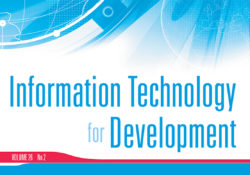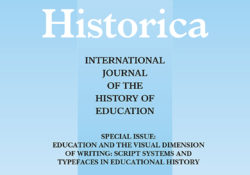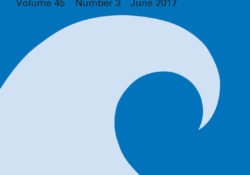eric.ed.gov har udgivet: Maryland’s demanding new Kindergarten Readiness Assessment was administered statewide for the first time. Its results are revealing and sobering. Many states do not even check in any systematic way on their children’s readiness for kindergarten, and in previous years, Maryland used metrics based on modest expectations, outdated standards, and feel-good politics. With the leadership of State Superintendent Lillian Lowery and Assistant Superintendent Rolf Grafwallner, Maryland has brought a new sense of reality to the skills that five-year-olds should possess if they are truly prepared to succeed in kindergarten and the early grades. These span four domains, two of them cognitive (language, math), plus physical well-being (motor development, hygiene, etc.) and what they term “social foundations” (self-control, for example). The assessment is individually administered by kindergarten teachers and… Continue Reading →
Like this:
Like Loading...
tandfonline.com har udgivet en rapport under søgningen “Teacher Education Mathematics”: Link til kilde
Like this:
Like Loading...
eric.ed.gov har udgivet: This paper explains the investigative attempts of The New York City Math Exchange Group (MEG) on elementary mathematics teachers’ content knowledge in Adult Basic Education (ABE). The study is comparative in nature and took place in a workshop at the Adults Learning Maths Conference in Boston. The new members of the MEG professional development group were compared to the veteran members. It is observed that among the experienced MEG members, the ability to compute a division problem, create story problems, and reason mathematically and abstractly were higher than in other studies of U.S. teachers and the sample of new MEG members. It is concluded that it is only through comprehensive and ongoing staff development that all teachers can better understand, apply, and teach mathematics to their students.… Continue Reading →
Like this:
Like Loading...
eric.ed.gov har udgivet: The George W. Bush Institute began the Middle School Matters (MSM) initiative in 2010 with the goal of increasing the number of students who are prepared for high school and postsecondary success. The initiative accomplishes this by drawing upon evidence-based research to develop practical tools and engaging support opportunities for middle grade campuses, allowing research-based practices to be brought to life in classrooms across the nation. The heart of the initiative is the deliberate connection between research and the instructional practice of educators. More specifically, MSM turned high-quality research into actionable strategies for districts, schools, and teachers to use to improve reading, writing, and math instruction — and to improve use of data systems to identify students who are at-risk of dropping out. This report continues the… Continue Reading →
Like this:
Like Loading...
tandfonline.com har udgivet en rapport under søgningen “Teacher Education Mathematics”: ABSTRACT ABSTRACT With the widespread extraction of very large datasets, artificial intelligence using machine learning hold the promise to address socio-economic problems such as poverty, environmental safety, food production, security and the spread of disease. These applications entail Big Data for Development in which social problems, poverty, food security and responses to climate disasters can be solved in the most efficient and effective manner. This brave new world of solving pressing problems through machine learning has several dark sides. A data divide is being created that leaves the most vulnerable populations out of the solutions being created while discriminating against those whose data is churned by obscure algorithms. Complex mathematical models together with computing algorithms produce scores that are used… Continue Reading →
Like this:
Like Loading...
tandfonline.com har udgivet en rapport under søgningen “Teacher Education Mathematics”: Link til kilde
Like this:
Like Loading...
tandfonline.com har udgivet en rapport under søgningen “Teacher Education Mathematics”: Education Matters Link til kilde
Like this:
Like Loading...
tandfonline.com har udgivet en rapport under søgningen “Teacher Education Mathematics”: Link til kilde
Like this:
Like Loading...
eric.ed.gov har udgivet: This study, sponsored by the Institute of Education Sciences (IES) in the U.S. Department of Education, examines whether some early elementary school math curricula are more effective than others at improving student math achievement in disadvantaged schools. A small number of curricula, which are based on different approaches for developing student math skills, dominate elementary math instruction–7 curricula make up 91 percent of those used by K-2 educators, according to a 2008 survey (Resnick et al. 2010). The main questions addressed by the study are: (1) What are the relative effects of the study’s four math curricula on math achievement of first- and second-graders in disadvantaged schools? and (2) Are the relative curriculum effects influenced by school and classroom characteristics? The study is addressing these questions by… Continue Reading →
Like this:
Like Loading...
eric.ed.gov har udgivet: As in other states, many North Carolina schools face the challenge of hiring and retaining high quality teachers. Recruiting and retaining qualified teachers in math, science and special education is particularly difficult, especially for the schools serving disproportionate shares of disadvantaged or low-performing students. In 2001, North Carolina responded to these challenges by introducing a salary bonus program paying up to $1,800 to certified teachers of math, science and special education in eligible middle and high schools. To be eligible, schools had to meet one of the following criteria: more than 80 percent of its students had to receive free or reduced price lunches, or the failure rate on both Algebra 1 and Biology end-of-course tests had to exceed 50 percent. Funding for this initiative was discontinued… Continue Reading →
Like this:
Like Loading...




